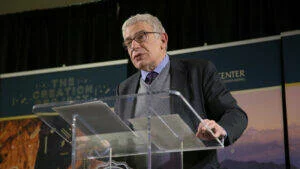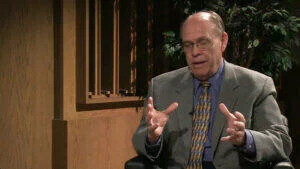When we confess the Apostles’ Creed, we affirm the mysterious role of the Holy Spirit in Christ’s conception in the Virgin Mary. This conception, Zurich reformer Heinrich Bullinger (1504-1575) argues in his An Ecclesiastical Exposition Upon Saint Luke, took place in a way that ensured that no stain of sin was present in him, yet allowed the sinless Christ to truly take on the nature of humanity and so accomplish his work in the redemption of the world.
Commentary
It is as if he should say, “that pure and Holy Spirit shall cover you in such a way that no one shall doubt or suspect any uncleanness. For God is a consuming fire, incorporeal, without affection and corruption. This pure Spirit of God, I say, shall extend his divine power over you, and shall make you fruitful without the seed of a man and shall bring it about that from your bodily substance, the Son of God shall take the substance of his true and human body, differing from other human beings in no way except for sin.” These words, “come on you,” contain great emphasis and force and signify that the work shall be extraordinary where the natural means are lacking. It is as if he should say, “The Son shall not only descend from heaven into you but also shall come on you with great power, that he may work effectually in you.” The Spirit of God has been said to have descended on Samson and the prophets in this way. It is as if Scripture had said, “The Spirit of God moved Samson and the prophets, and was effectual in them and brought those things to pass which it desired to accomplish with great might.”
Luke, ed. Beth Kreitzer, Reformation Commentary on Scripture, NT vol. 3, p. 18.








Comments
Be the first one to make a comment!